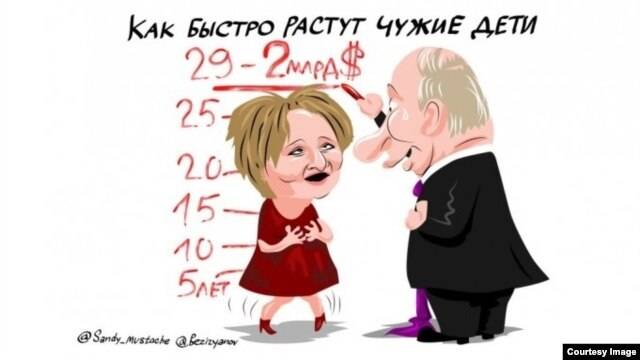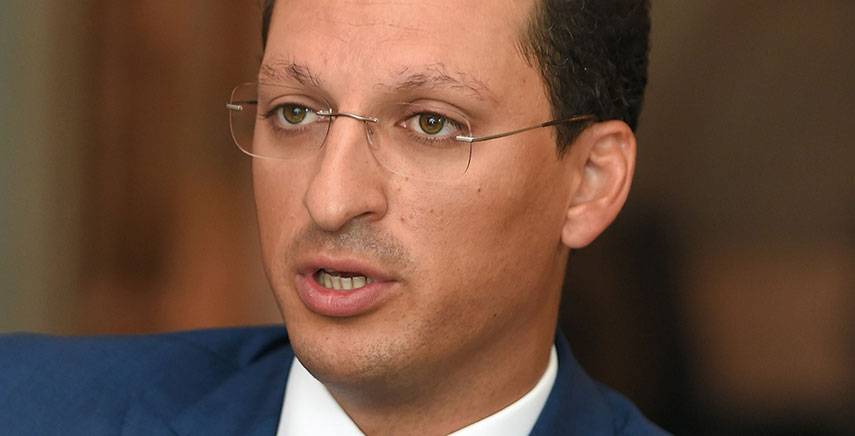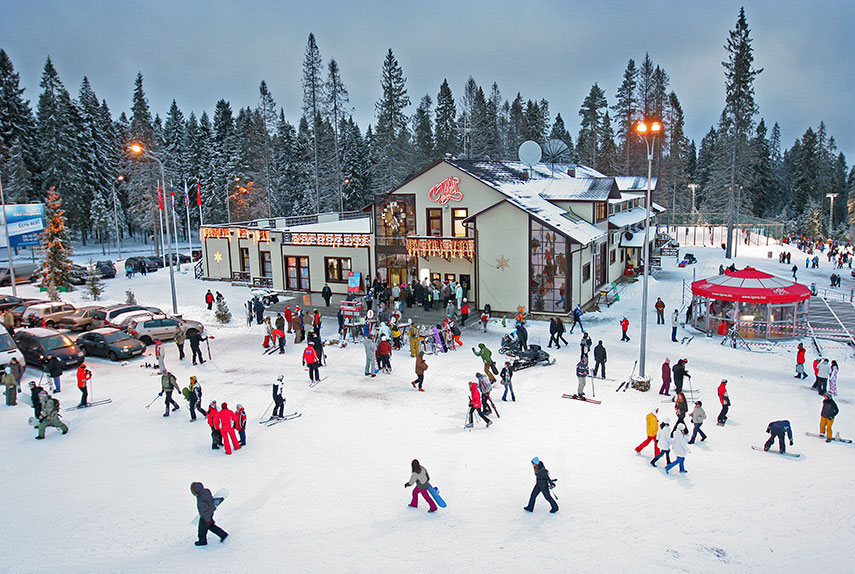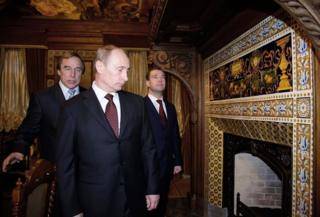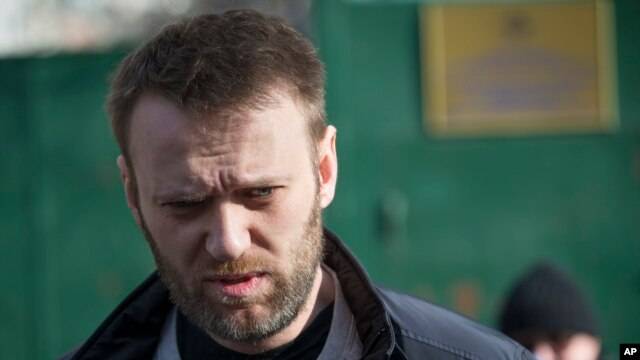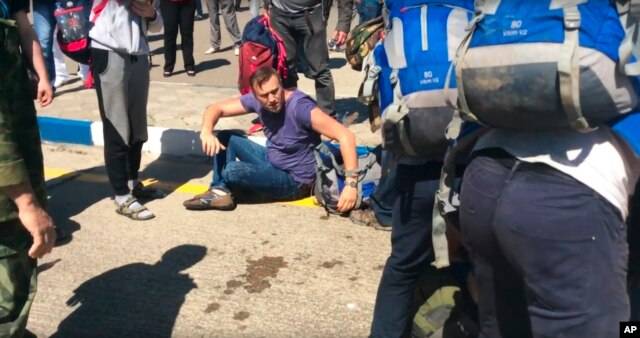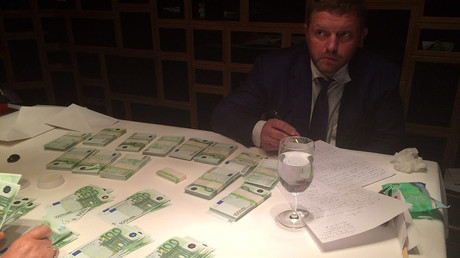Imposters or an expose of Russian Corruption...
Fathers And Children: The Internet Reacts To Putin's Alleged Billionaire Daughter
November 11, 2015 - Kremlin supporters and opponents are bickering online following Reuters' publication of an extensive investigation into the lives and fortunes of Russian President Vladimir Putin's two daughters.
See also:
Records Linking Russian Defense Minister's Daughter To Lavish Mansion ‘Disappear’
November 10, 2015 - The saga of a multimillion-dollar, pagoda-style mansion allegedly tied to Russia Defense Minister Sergei Shoigu has taken a new twist, with activists accusing the federal government’s main real estate registry of altering documents linking the property to his immediate family.
Fathers And Children: The Internet Reacts To Putin's Alleged Billionaire Daughter
November 11, 2015 - Kremlin supporters and opponents are bickering online following Reuters' publication of an extensive investigation into the lives and fortunes of Russian President Vladimir Putin's two daughters.
The news agency confirmed longstanding rumors that his youngest daughter goes by the name of Katerina Tikhonova, and detailed her involvement with Moscow State University (MGU) after an extensive search of public records. According to the documents, she signed contracts worth about $2.8 million with state-owned organizations so that the institutions she manages could carry out work at the university. The projects are aimed at enlarging and improving the Moscow State University campus.
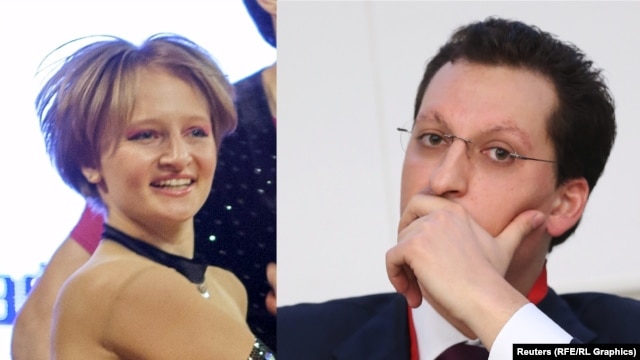
According to Reuters, Katerina Tikhonova (left) is Putin's youngest daughter and she is married to Kirill Shamalov (right), the son of a shareholder in Bank Rossia.
According to Reuters, Tikhonova has also identified herself as a "spouse" of Kirill Shamalov, the son of Nikolai Shamalov, who is a shareholder in Bank Rossia. The company is often described as the "personal bank of the Russian elite." The young couple is believed to have corporate holdings worth about $2 billion, Reuters reported. In addition to two anonymous sources, Reuters cited Andrey Akimov, deputy chairman of Russian lender Gazprombank, as confirming to the news organization that Tikhonova was, in fact, Putin's daughter.
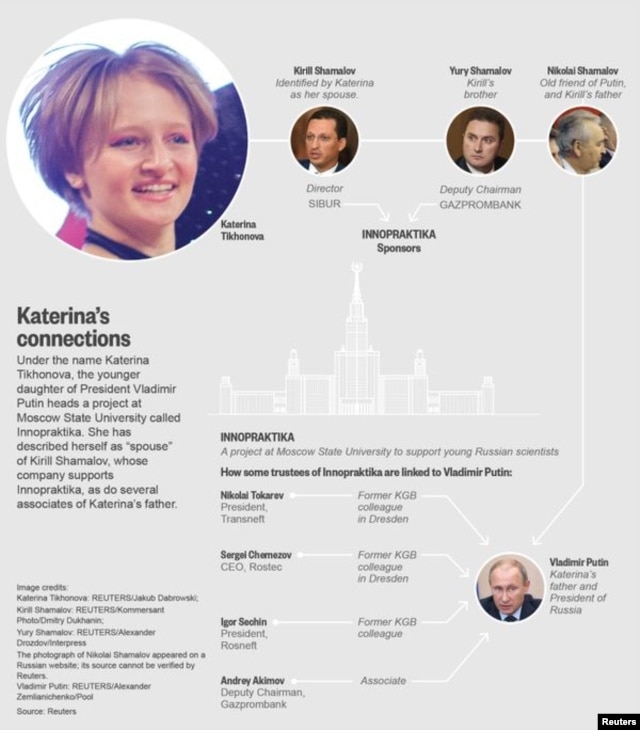
Katerina Tikhonova's connections
Akimov is one of the investors in the projects headed by Tikhonova at the university. "I knew it was Putin's daughter. But of course we took the decision to support [MGU's] projects irrespective of any family connections," he told Reuters. The day the investigation was published, Gazprombank denied that Akimov made any statements regarding Tikhonova's relationship to Putin. "Akimov … was surprised and bewildered when he read the report by the Reuters news agency in which he is credited with the statement that … Ms. Tikhonova, is supposedly the daughter of the President of the Russian Federation," the November 10 statement read. "It is not so."
MORE
See also:
Records Linking Russian Defense Minister's Daughter To Lavish Mansion ‘Disappear’
November 10, 2015 - The saga of a multimillion-dollar, pagoda-style mansion allegedly tied to Russia Defense Minister Sergei Shoigu has taken a new twist, with activists accusing the federal government’s main real estate registry of altering documents linking the property to his immediate family.
Opposition leader Aleksei Navalny’s anticorruption organization last month published copies of documents from the registry showing that Shoigu’s daughter, Ksenia, became the owner of the property in a prestigious village on Moscow's western outskirts in 2009, when she was 18. But a funny thing happened to those documents retrieved from the database of Rosreestr, the federal agency tasked with maintaining Russian real estate records. According to the same activists who posted the records, they’ve now disappeared. Navalny’s chief investigator, Georgy Alburov, wrote in a November 10 blog post that documents showing Ksenia Shoigu’s links to the property have been excised from the Rosreestr database. “All of the owners have disappeared from the records other than the current one -- the sister of Shoigu’s wife,” Alburov wrote.
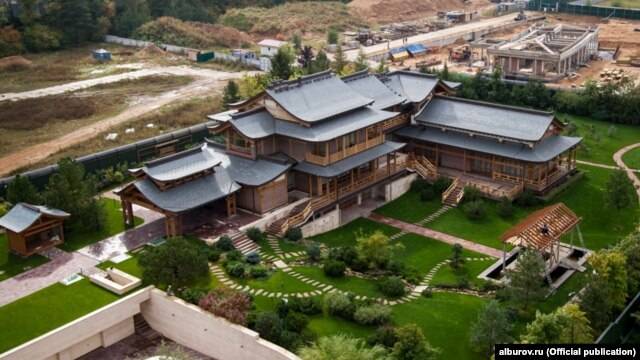
The mansion is estimated to be worth around $18 million, far beyond Shoigu's spending power.
The current Rosreestr records on the property show that its owner is a woman named Yelena Antipina, whom Alburov claims is Shoigu’s sister-in-law. (Her last name is the same as the maiden name of Shoigu’s wife, Irina, and both women have the same patronymic -- Aleksandrovna.) Alburov published before-and-after scans of the Rosreester documents showing that references to Ksenia Shoigu had been deleted. He said he plans to sue Rosreestr over the purportedly doctored documents and that Navalny’s anticorruption group has asked the federal Investigative Committee -- Russia's analog of the FBI -- to look into possible criminal manipulation of government documents. “We will strive to bring criminal liability for everyone who decided to alter government databases in order to defend fraudsters,” Alburov wrote.

Russian Defense Minister Sergei Shoigu
The expensive tastes of Russian government officials and their families have proven to be populist kindling for Kremlin opponents’ fiery exposes of their lavish lifestyles, both inside Russia and abroad. Recent reports published by Navalny’s organization, called the Fund To Fight Corruption, alleged that the Kremlin’s chief spokesman owns an astronomically expensive watch and honeymooned on a yacht that costs 350,000 euros per week to rent. Alburov estimated the mansion purportedly owned by Shoigu to be worth “at least” $18 million, far beyond the minister’s spending power, judging by federally mandated disclosures of his and his family’s income and assets. The allegedly amended records now show no ownership of the property’s main plot of land until its acquisition by Antipina in 2012, though Google Earth images published by Alburov show that construction of the home began as early as 2010.
MORE


